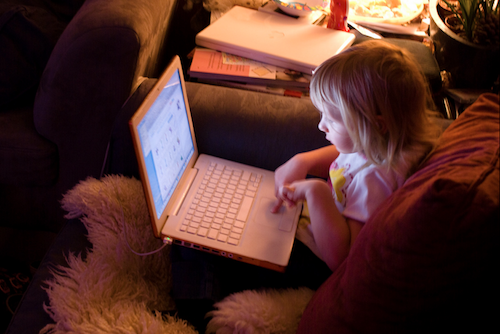As I was perusing The New York Times over the weekend, I read quite a few stories on a variety of topics but there was one in particular that caught my attention and stayed with me for some time.
Sadly, it wasn’t from the international news or business section, but rather from the Style section. The title of this piece was “Along with Babies, Hairstylists Are Arriving in Hospitals.” It was a rather short blurb about the rise of women in the NYC area “booking hairstylists and makeup artists to come to their hospital room for postpartum grooming.”
Apparently one hairstylist alone has seen a 200 percent increase in these bookings in the past three months alone.
As the article explained, the reason for this increase can be linked to the fact that first baby photos these days are posted on social media where they are viewed by hundreds if not thousands of friends and acquaintances. (As someone who gave birth to my second child seven months ago, I am well-aware of the phenomenon of posting the first baby pictures online having done the same thing myself.)
Also, like everyone else who follows celebrity news and gossip, I saw the photos of a perfectly turned out Kate Middleton posing on the hospital steps just hours after giving birth to her second child. And while I could understand why a celebrity would hire the pros, my mind was still a bit baffled by the idea that an ordinary person would go to such lengths. After all, Instagram and Facebook are hardly the same as the pages or websites of People or Hello! magazine.
Then it occurred to me.
The words of Andy Warhol warily predicting that in the future everyone would have 15 minutes of fame were running through my mind. Like it or not—and whether we are consciously aware of it—nearly all of us are “stars” thanks to the power of social media.
As someone who is both equally drawn to and repelled by it and as someone who trained as a social scientist, social media is a topic of endless fascination of me. Nearly all us have read or at least seen-probably posted on social media-blog posts and articles about individuals who create entire personas and lives on social media that bear little-to-no resemblance to reality. And we aren’t talking about “catfishing” here. We all know that one person or in some cases persons who boosts about their perfect lives, families and/or jobs when in truth, they are anything but perfect.
In one of the most memorable examples I ever encountered, I met a woman at a social gathering who was a friend of a friend. Within minutes of our introduction, she went off on her soon-to-be ex-husband with whom she was engaged with in a very acrimonious divorce and who, in her words, was “childish,” a “loser” and a host of other things far worse than that.
Hours later—after I left and I was checking my news feed—I came across a post of hers praising said ex and their ability to be friends and wonderful co-parents. (This was years before Gwyneth Paltrow used the expression “conscious uncoupling,” but this post seemed to be a couple of notches above that.) The contrast between what this woman shared with me versus what she was telling the world on social media was interesting to say the least.
In all fairness, we all do this to some degree. Nearly all of us are seeking recognition or attention of some kind whether we admit it or not.
On social media, the only one taboo that seems to remain is calling people out for their falseness even when we know it and even snark about it off-line with others.
Sometimes it seems that in the social media world, appearances are everything. Even if things aren’t perfect, we can give the appearance of such be it in pictures we post or pictures we create with words.
Interestingly enough, when Facebook founder Mark Zuckerberg announced last week that he and his wife, Dr. Priscilla Chan, were expecting their first child together, he deviated from usual everything-is-perfection script by revealing that he and Chan experienced three miscarriages prior to this pregnancy. Zuckerberg explained that the couple was sharing this information to take away some of the stigma and shame that many people feel around miscarriage.
While the couple received mostly praise from the mainstream media for sharing this, I read more than a few comments on social media criticizing Zuckerberg’s announcement saying that social media was not the place to share such “private” grief. Most seemed to have no problem with the happy pregnancy news, but felt the unhappy news of the previous miscarriages was just too much.
However, I disagree with them. I happen to feel that the news will help others who have also miscarried, and I happen to agree with what Zuckerberg when he wrote, “In today’s open and connected world, discussing these issues doesn’t distance us; it brings us together. It creates understanding and tolerance, and it gives us hope.”
Indeed. I like to believe there is a fine balance between sharing everything-warts-and-all on social media and creating an illusion of perfection that has little to do with reality. Perhaps deviating from the latter from time to time and getting honest will not only help ourselves but others, too.
At the very least, it may serve as a reminder of how nothing is ever perfect.
Author: Kimberly Lo
Editor: Renée Picard
Image: Flickr







Read 0 comments and reply